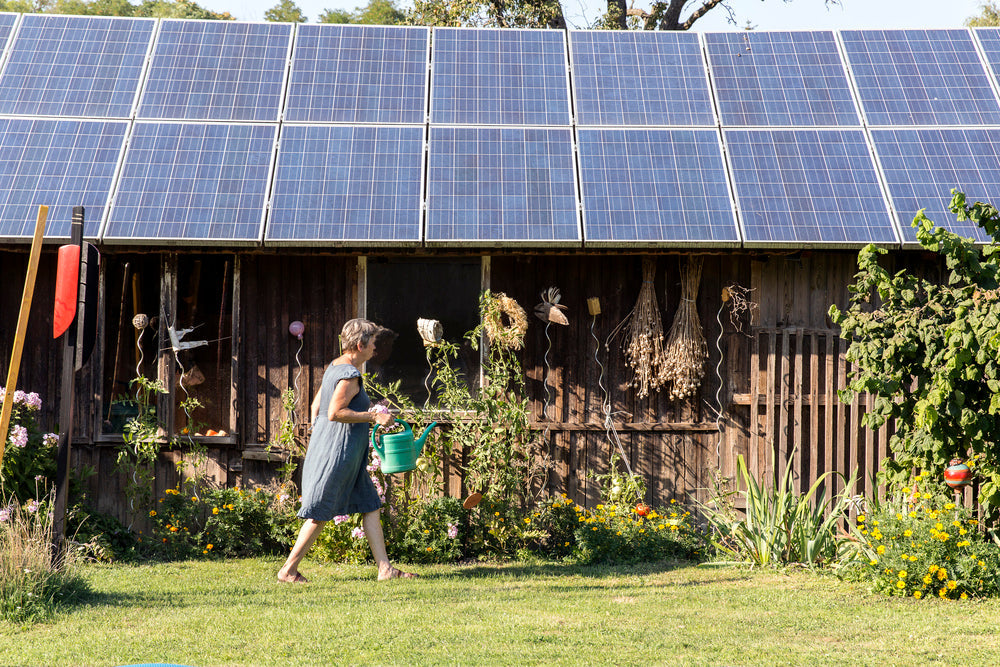Let’s be honest—if you’ve ever seen a sleek electric car silently roll past while you were stuck behind a honking gas guzzler, you’ve probably wondered: are EVs the real eco-deal, or just another shiny greenwashed gadget?
Like any sustainability topic, it’s a little complicated—but don’t worry, we’re here to break it down without the jargon, guilt trips, or “you must buy a new car immediately” energy. Whether you’re EV-curious or just want to know what all the buzz is about, let’s plug in and get into it.
Spoiler alert: they can be eco-friendly… but it depends on how we charge, drive, and recycle the tech that powers them.
Why People Love EVs (and Why the Planet Might Too)
Electric vehicles (EVs) run on electricity rather than gasoline or diesel. That means no tailpipe emissions, no oil changes, and no more “check engine” light ruining your road trip. Pretty sweet, right?
But the real magic lies in their potential to reduce greenhouse gas emissions. Traditional cars are major contributors to air pollution and climate change. In fact, transportation is the largest source of carbon emissions in the U.S. So swapping gas-powered vehicles for EVs could cut a huge chunk out of our carbon footprint—especially when the electricity used to charge them comes from clean energy sources like wind and solar.
Bonus: EVs are also quieter, cheaper to fuel, and often less expensive to maintain over time. Your wallet and your lungs might both breathe a little easier.

But Wait—What About the Batteries?
Ah yes, the battery elephant in the room. Most EVs use lithium-ion batteries, which require mining for metals like lithium, cobalt, and nickel. Mining comes with its own set of environmental and ethical challenges, from habitat destruction to poor labor conditions in some parts of the world.
That said, the battery conversation is evolving fast. Researchers are working on more sustainable mining practices, improved recycling systems, and even new battery chemistries that reduce reliance on rare materials. Plus, many EV batteries last longer than expected—and even after they retire from the road, they can often be reused for stationary energy storage.
So yes, battery production does have an impact—but it's still generally lower than the lifetime emissions of a gas-powered car.
Where Your Electricity Comes From Matters
Here’s the catch: if your EV is charging off a power grid that runs mostly on coal, it’s not as green as it could be. That’s why location is key.
In places where renewables like solar, wind, or hydro make up a big chunk of the grid, EVs are much cleaner to operate. Even in areas with dirtier grids, they still tend to produce fewer emissions over their lifetime than conventional cars—but the greener your energy source, the better the tradeoff.
Want to level up your EV’s eco-score? Consider charging during the day if your utility uses solar, or switch to a green energy plan. You can even install rooftop panels if that’s your jam. That way, your clean ride runs on equally clean juice.

Not All EVs Are Created Equal
There’s a big difference between a zippy two-door commuter EV and a giant electric truck that weighs more than your first apartment. While both have zero tailpipe emissions, their total environmental impact isn’t the same.
Larger EVs require more materials to build and more energy to charge, which can offset some of their climate benefits. So when it comes to choosing an electric vehicle, size really does matter.
If your goal is maximum efficiency, smaller, lighter EVs or plug-in hybrids used mostly in electric mode tend to be the most environmentally friendly choices. If you don’t need a truck, don’t buy one just because it looks cool. (We said what we said.)
Test Drive These Action Items
If you’re thinking of going electric, here’s how to make sure your EV journey is as green as it can be:
-
Charge with clean energy whenever possible—opt into a green power plan or use solar if you’ve got it
-
Drive efficiently—avoid jackrabbit starts, keep tires inflated, and don’t haul around unnecessary cargo
-
Keep it small(ish)—choose a car that fits your actual needs, not your “what if I take up kayaking?” fantasy
-
Maintain your battery—extreme heat, overcharging, or letting it run to zero repeatedly can reduce lifespan
-
Recycle responsibly—when the time comes, make sure your EV battery is sent to a certified recycler or repurposed
These small decisions add up to a much bigger environmental win.

Are EVs the Answer to Everything?
Not quite. While EVs can drastically reduce emissions and help transition us away from fossil fuels, they’re not a silver bullet. We also need better public transportation, safer biking infrastructure, and walkable communities that reduce our need for cars in the first place.
But for folks who do need a car, choosing an EV—especially when paired with low-waste living habits—is one of the most impactful ways to shrink your footprint. Think of it as one piece of the sustainability puzzle, not the whole picture.
And hey, even if you’re not in the market for a new car right now, you can still ride the clean energy wave. Carpool when possible, combine errands to reduce trips, and bike or walk when it works. It’s all part of the bigger mission.
You Don’t Have to Be Perfect to Drive With Purpose
The future of driving doesn’t have to smell like gasoline. It can be quiet, efficient, and powered by the sun. It can be part of a lifestyle that says, “I care about the road I take and the impact I leave behind.”
Whether you’re test-driving a Tesla, riding your bike to work, or just composting your snack wrapper in the passenger seat (we love to see it), you’re already moving in the right direction.
Looking to green your ride from glove box to trunk? Check out our reusables for the road—perfect for snacks, spills, and sustainable adventures.



